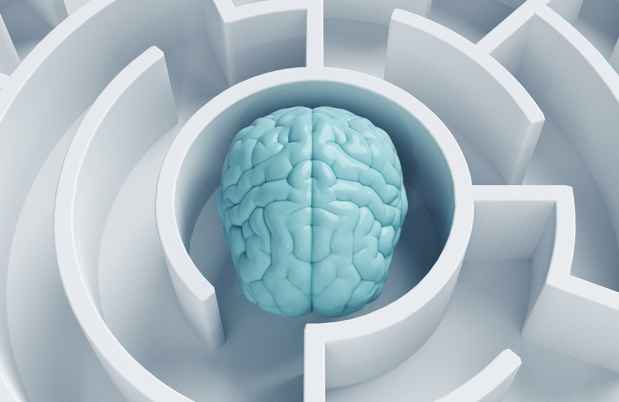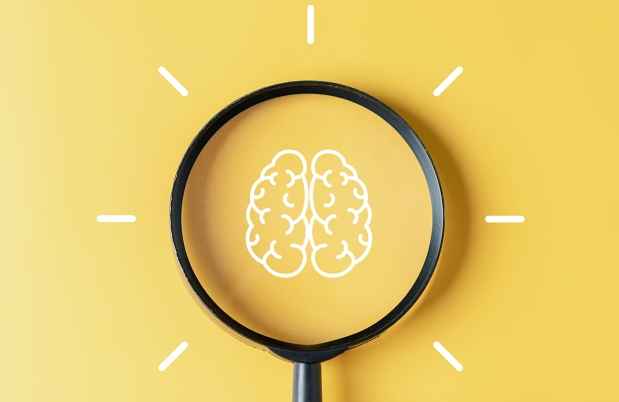Elizabeth See struggled with depression for more than a decade when, in November 2014, she was diagnosed with Goodpasture syndrome, a rare autoimmune disease that attacks the kidneys and lungs. A tennis professional, she suddenly found her livelihood and passion restricted by physical constraints and regular dialysis treatments.
Her depression worsened, causing her to stop participating in everyday activities. Some days, she didn’t want to eat or talk to family or friends. When she first heard about transcranial magnetic stimulation (TMS), “I was at a point where I had nothing to lose,” she said, “but after the fifth treatment, the light shined through. It was an extraordinary thing to begin feeling like myself again.”
Oscar G. Morales, MD, associate director of McLean’s Psychiatric Neurotherapeutics Program (PNP) and director of the TMS Service, said that See’s experience is typical for those who undergo TMS treatments.
TMS and ECT are increasingly sought-after treatments for depression and other mental illnesses.
“An estimated 20 to 40% of patients who live with severe depression do not benefit adequately from such interventions as medications and psychotherapy, yet they have great success with TMS,” said Morales. “TMS has proven to be both safe and effective, with patients experiencing positive outcomes after several weeks of treatment.”
In 2014, a generous anonymous donor made it possible for McLean to acquire a deep TMS device, thus expanding the hospital’s offerings for those with severe depression. The anonymous donor followed up in 2015 with an additional gift to further strengthen McLean’s TMS program.
Like See, an increasing number of people who struggle with depression or other psychiatric diagnoses are seeking out TMS or electroconvulsive therapy (ECT) to address their disorders without—or with a reduced need for—medication. While TMS is used for severe depression—especially for those who do not respond well to medication—ECT is a highly effective intervention for chronic depression, mania, and schizophrenia.

Both TMS and ECT, which are part of the hospital’s PNP, have become successful treatments for patients, according to Stephen J. Seiner, MD, director of the PNP and medical director of the ECT Service.
“Over the past 10 to 15 years, there has been a strong demand for ECT and we’ve been working to continuously meet that demand,” said Seiner. “We’re providing about three to four times the treatments we were doing previously, which is now about 10,000 treatments per year—making us one of the largest ECT centers in the country. We remain on the cutting edge of the latest advances in ECT and TMS, and more recently, deep TMS.”
There are several reasons why more people are choosing ECT and TMS to address their illnesses, he said, including the high success of the treatments, the reduced stigma of mental illness, the increased availability of accurate information online and in the media, and the increased awareness through physician offices and hospitals.
“As patients get better, they and their doctors refer more people to our services,” explained Seiner, who noted another reason for an increase in demand has been the program’s reputation for its expertise. “We’re a passionate group of people committed to helping the most profoundly depressed and ill patients in psychiatry.”
In early 2015, the ECT and TMS suite moved to a new location on the Belmont campus, which made it possible to increase capacity and better accommodate patients. “When we started offering TMS in 2008, we were providing six to eight treatments a day, and now that number has more than doubled,” said Paula Bolton, MS, APRN-BC, program director. “We’re continually trying to meet the demand in a way that is both feasible, in terms of running the program, and truly patient centered,” said Bolton. “It’s all about the patient. We customize treatment so each patient feels like they’re getting the attention that they need.”
Like many patients, See feels fortunate to have heard about TMS when she did. “I can’t say enough about the people at McLean and how supportive they have been,” she said. “I was actually able to look at the sunset the other day and really appreciate it and be grateful I was alive.”
Media Requests
Journalist or member of the media? We are available 24/7 for media requests.



